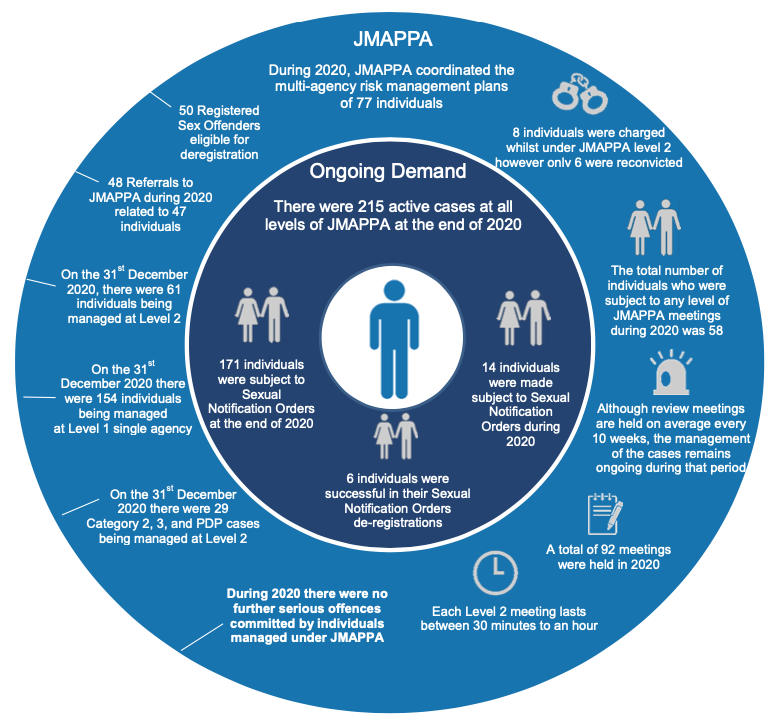


The number of sex offenders monitored by agencies continues to increase in Jersey.
At the end of last year, there were 171 people on the sex offenders’ register who are managed by Jersey Multi-Agency Public Protection Arrangements – a collection of bodies, including representatives of the Police, Health, Education and Andium Homes.
This compared to 164 at the end of 2019, 147 at the end of 2018 and 130 at the end of 2017. That represents a 32% increase over four years.
JMAPPA said that the increase in numbers from previous years could be attributed to increases in partner agency referrals and sexual assault convictions.
JMAPPA’s recently published annual report for 2020 reveals that there was a total of 215 offenders under its management at the end of the year. Most were registered sexual offenders but there were also 27 violent offenders and 16 ‘category 3’ offenders, who do not have the capacity to take part in court proceedings or are assessed as posing a serious risk of harm.

Pictured: An infographic from the JMAPPA annual report to demonstrate its activities in 2020.
The report said that, during 2020, there were no serious offences committed by offenders managed by JMAPPA. Six offenders were re-convicted during 2020 and 58 individuals took part in meetings with JMAPPA.
Detective Superintendent Stewart Gull, Chairman of JMAPPA, said: “I’m pleased that the rate of re-offending remains low; it demonstrates that the JMAPPA process continues to be successful since it launched a decade ago.

Pictured: JMAPPA Chairman, Detective Superintendent Stewart Gull.
“Offenders continue to be managed on their assessed behaviour and risk, however, we can never be complacent as this process is not fool proof – we cannot completely eliminate risk and ultimately, offenders must take personal responsibility for their behaviour.
“Training and advice continue for all agencies involved, helping to achieve our joint objective of supporting and reintegrating offenders back into the community.”
Comments
Comments on this story express the views of the commentator only, not Bailiwick Publishing. We are unable to guarantee the accuracy of any of those comments.